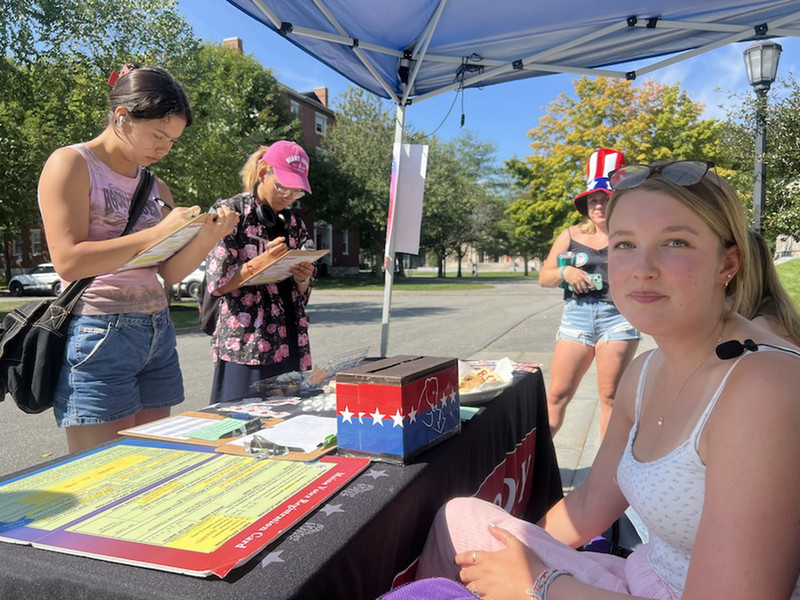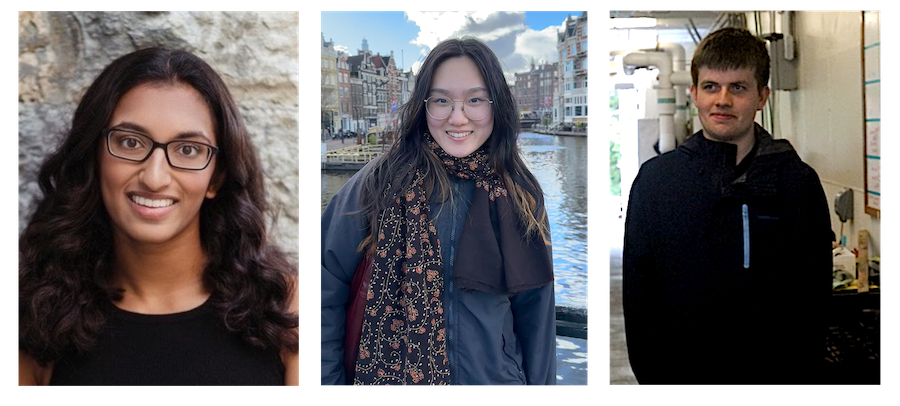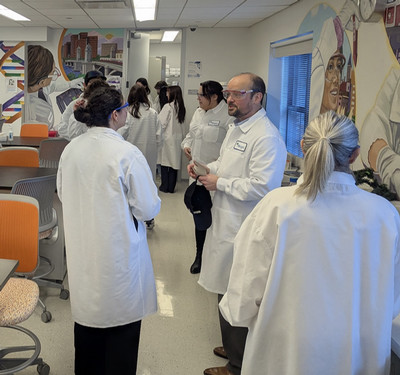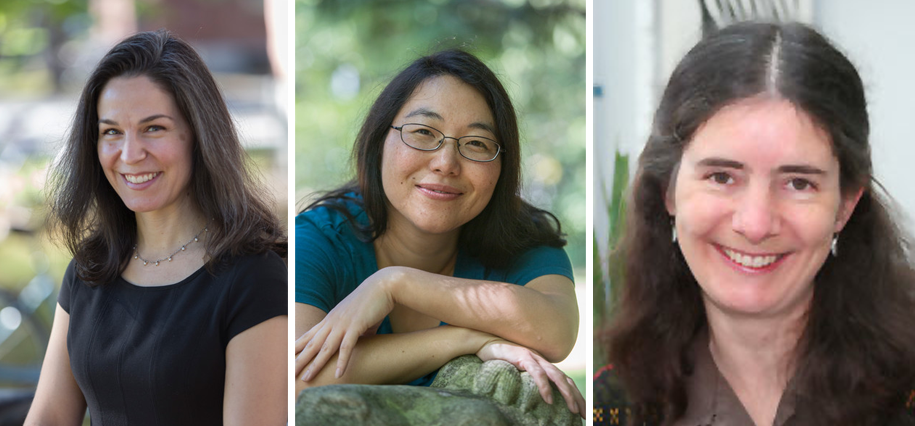Senior’s Healthcare Research Begins in Maine, Moves to Rwanda
By Rebecca Goldfine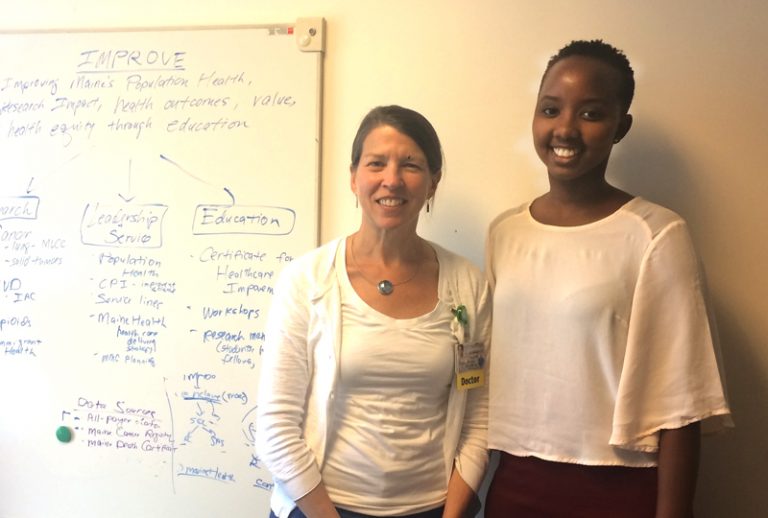
After returning home to Kigali, Rwanda, for the last two summers, Darlene Ineza ’19 decided that this summer, her final one as a Bowdoin student, she would like to stay in Maine and work on a project that was not only relevant to her interests, but also helpful to the community.
A biochemistry major and sociology minor, Ineza focused her attention on how immigrants and refugees in Maine access healthcare. She received a Denning Summer Fellowship from the McKeen Center to collect data and conduct interviews, and recently has written up her findings and recommendations in a report, “Barriers to Healthcare Access for New Mainers,” which she is sharing with medical providers throughout the state.
She worked closely with Dr. Kathleen Fairfield ’89, a internist and health services researcher at Maine Medical Center Research Institute in Portland. Fairfield said that “Darlene did a remarkable job gathering, synthesizing, and interpreting an enormous amount of information on the issue of barriers to health care access for Maine immigrants. This work will help providers and community members better understand where we need to make improvements.”
In the report, Ineza begins her assessment from a mile-high perspective, remarking on the massive number of people who have had to flee their homes, mostly due to war and persecution. “At the end of 2017, the UNHCR [United Nations Refugee Agency] recorded a global record of 68 million forced displaced people,” she writes. Maine is not untouched by this calamity, and many refugees and immigrants have moved to the state over the past few years.
But some of the state’s systems, particularly its healthcare, have not yet fully adapted to the newcomers, she argues. “New Mainers are often escaping harrowing experiences of war and deprivation and move to the U.S. with a need for quality physical and mental health services,” Ineza writes. “Securing the best possible healthcare access and quality for immigrants not only helps them become healthier, but also speeds up their acculturation to the U.S as stable, working, civil citizens.”
Now that the summer chapter of her research has concluded, Ineza is continuing to investigate marginalized patients’ access to healthcare in an independent study. But she has shifted her focus from Maine to her home country, which, almost a quarter century later, is still rebuilding from the aftermath of its civil war and genocide.
“I want to see how during 1994, during the war and after, Rwandan women’s health was affected—how women were affected differently in the conflict,” Ineza said. This work also builds on an internship she had in 2017 with Partners in Health in Kigali, Rwanda, an experience supported by a Preston Public Interest Career Fund Grant from Bowdoin Career Planning.
Her current research is being advised by Nancy Riley, who is Bowdoin’s A. Myrick Freeman Professor of Social Sciences.
Though she was not yet born when hundreds of thousands were killed in the genocide, and families and communities were torn apart, Ineza said she, like every Rwandan, still carries the history close.
While it is very likely she will attend medical school abroad, Ineza is adamant about returning to Rwanda after earning her M.D. to practice pediatric or OB-GYN medicine. “I think that is where I will be the most useful,” she said. “Rwandan youth have a determination to do better, and help our country develop. We recognize all the hard work it has taken to recover since 1994, and that is why we have this urge to give back to the community.”
Removing Barriers to Healthcare for New Mainers
After laying out her methodology and identifying barriers, Darlene Ineza ’19 spells out seven recommendations for improving the health of refugees and immigrants in Maine.
- Fight for policy change
- Expand the concept of cultural competency to cultural humility
- Increase numbers of cultural brokers and public health nurses
- Innovate in health literacy education
- Promote diverse representation in medicine
- Collect data on race and ethnicity
- Incentivize interpretation
